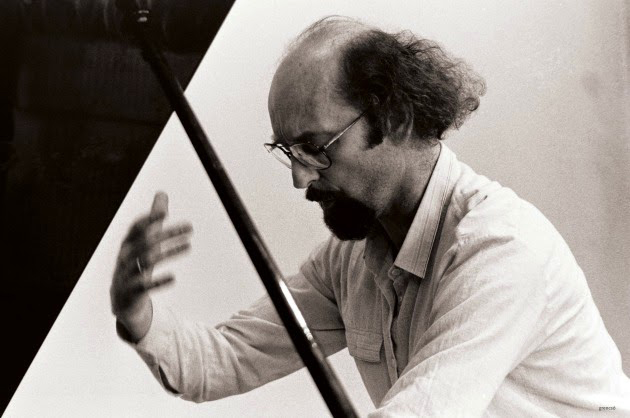Gyorgy Szabados was born in Budapest, July 13, 1939. He is a prominent figure of Europe’s improvisative, contemporary music scene. His father was a doctor, and his mother was a singer and teacher of singing. He was able to demonstrate his extraordinary talents at an early age. His musical interests included improvised piano-playing and a constant disposition to express himself and compose. This ability influenced his musical studies. He completed the private education required. He also completed his Doctor of Medicine degree, fulfilling his father’s wish. His career development was severely impeded by the highly restricted, ideologically restrictive intellectual and artistic life in Hungary during the earlier period. All other spiritual manifestations were banned, considered dangerous, and prohibited from existence. As in Europe, and also in Hungary, jazz had a significant influence on the development of live music. Szabados was no exception. His improvisational abilities were finally freed by the jazz-effect. Nevertheless, Szabados is not a “jazz musician”. His music is dynamic and a mix of European and Hungarian music, in the sense of tradition and modernity. It’s full of energy, spontaneity, and intelligence. He was able to escape his isolation in 1972 after several failed attempts. This was through jazz alone. He won the Grand Prize of the Jazz Competition San Sebastian in the Free Jazz category. Although he was not as happy at home with the prize, he began to be able give more concerts, particularly in universities. He established a contemporary musical workshop where he introduced many students to the practice and world of improvisative contemporary tunes. His creative approach is based upon the harmony of composition and free improvisation. He views the music as a natural language, and the man as an expert intermediator. Only in the 1980’s did he have the opportunity to enjoy regular concerts abroad, recordings, and a recognized, continuous creative work. His unique musical world is a strong inspiration and creates a distinctive way of making new music. He frequently publishes musical writings. Roscoe Mitchell (Chicago Art Ensemble, joint CD), Antony Braxton, Peter Kowald (joint album), Peter Kowald (joint single), Fred van Hove (joint record), Peter Kowald (joint LP), Johannes and Connie Bauer), Fred van Hove (joint LP), Peter Kowald (joint CD), Fred van Hove), Evan Parker, Jiri Stevin, Hans-Ludwig Petrowsky and Vladimir Tarasov to name asov, Tarasov) He established MAKUZ, an improvisative orchestra that became the interpreter for the characters of his ideas. He wrote ballet (Ivan Marko), chore-opera (Joseph Nadj), ritual and memorial music, as well as several solo piano pieces and chamber works. He was awarded the Liszt Ferenc Prize, 1983 in recognition of his contributions. He was also awarded the Prize For Hungarian Arts and the Szabo Gabor Life Achievement Award in 2001. He was presented with the Kossuth Prize by the President of Hungary shortly before his death. This is the most prestigious cultural award given in Hungary. Gyorgy Ligeti, a well-known composer, considers Gyorgy Zzabados one of Europe’s most important composers (see his article about CD “Sand Music/Homokizene). Szabados’ work is one of few organic pieces of music that doesn’t contain elements of strain stemming out of constructivism or lucidity. His music is deeply rooted within the archaic sacral nature. Bela Bartok put it this way: “In today’s clothes»”. Gyorgy Szabados died in Nagymaros on 10 June, 2011. from http://gyorgy-szabados.com
